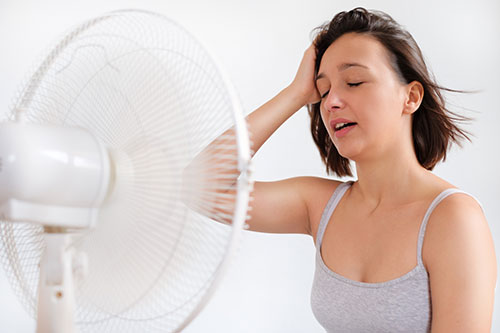A reliable air conditioning system can be a godsend when temperatures soar during the summer. Unfortunately, even the best A/C systems can break down when they are forced to work too hard or are improperly maintained. The following tips will help you keep your system running efficiently, so you can avoid a stifling hot house and unmanageable repair costs.
- Check your filters. Ideally, you should swap out your filters about once per month, whatever the season. During the summer, however, this becomes especially important, since dust and pollen is more abundant. If you allow your filters to become clogged, your HVAC system will have to work much harder to cool your home. Replacing filters is one of the simplest and most effective ways to conserve energy and lower your utility bills. Much like changing the oil and fuel filters in your car, it’s also a critical step in preserving your system’s long-term health.
- Schedule an inspection. Before the summer begins, you should have your air conditioner inspected by a licensed, insured and bonded HVAC professional. You can expect to pay from $70 to $100 for a tune-up. That said, this is but a fraction of what you might have to pay to repair or replace your HVAC unit if it breaks down. Make sure the HVAC pro cleans your unit’s condenser coils and inspects the coolant lines. If you noticed any problems before the inspection, ask the professional to wait for you to test the system’s performance before he or she leaves.
- Try to keep your unit in the shade. Air conditioners run more efficiently when they aren’t sitting directly under the sun. Since air in shaded spaces remains cooler, your A/C won’t have to work as hard cooling your home if it is shielded from sunlight. If possible, try to keep your unit shaded. That said, you should avoid planting trees and shrubs too close to your home, or you could suffer foundation damage, due to root development.
- Keep your thermostat free from interference. To make sure your air conditioner runs only when it’s needed, it’s important to ensure that it can accurately measure interior temperatures. Be careful not to place TV sets, lamps and other heat-producing appliances close to your thermostat. When installing a new thermostat, avoid placing it in a location that will be under direct sunlight at varying times of the day. If your thermostat is already in a bad spot, see if you can hang some curtains to create some shade.
- Set it and forget it. To reduce the burden on your A/C system, you should tweak your thermostat before you leave home. If you tend to forget, consider purchasing a programmable timer or smart thermostat that allows you to specify internal temperatures according to a schedule.
- Weatherize your home. To reduce the load on your system, you need to make sure cold air stays where it belongs. Some simple weatherization can drastically reduce air loss during the summer. Start by sealing air leaks around doors and windows with weather-stripping or latex caulking. You can also add insulation around air conditioning ducts to keep air cooler as it travels to your vents.
A 2-10 HBW Home Warranty Service Agreement can help protect you from expensive appliance repair and replacement costs. Contact us to learn more.







